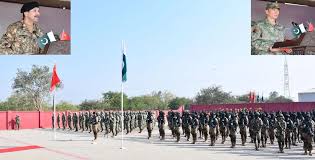Pakistan and China have launched their annual joint military counterterrorism exercise in northeastern Punjab province, the Pakistani military said on Tuesday.
The exercise began on Monday at the National Counter Terrorism Centre (NCTC) in the Pabbi area of Kharian district, focusing on enhancing interoperability in counterterrorism operations, strengthening professional skills and sharing modern warfare practices, the Inter-Services Public Relations (ISPR), the Pakistan Army’s media wing, said in a statement.
The latest edition, titled “Warrior-IX,” marks the ninth round of the bilateral counterterrorism drills held between the two close defence partners.
Senior military officials from both countries attended the opening ceremony, including Maj. Gen. Bian Xiaoming, deputy chief of staff of China’s Western Theatre Command.
China’s Defence Ministry said on Sunday that the joint drills will continue until mid-December under the theme of “joint counterterrorism clearance and strike operations.”
The exercise aims to test and enhance the two militaries’ joint counterterrorism capabilities and contribute to safeguarding regional peace and stability, it added. TRT World






